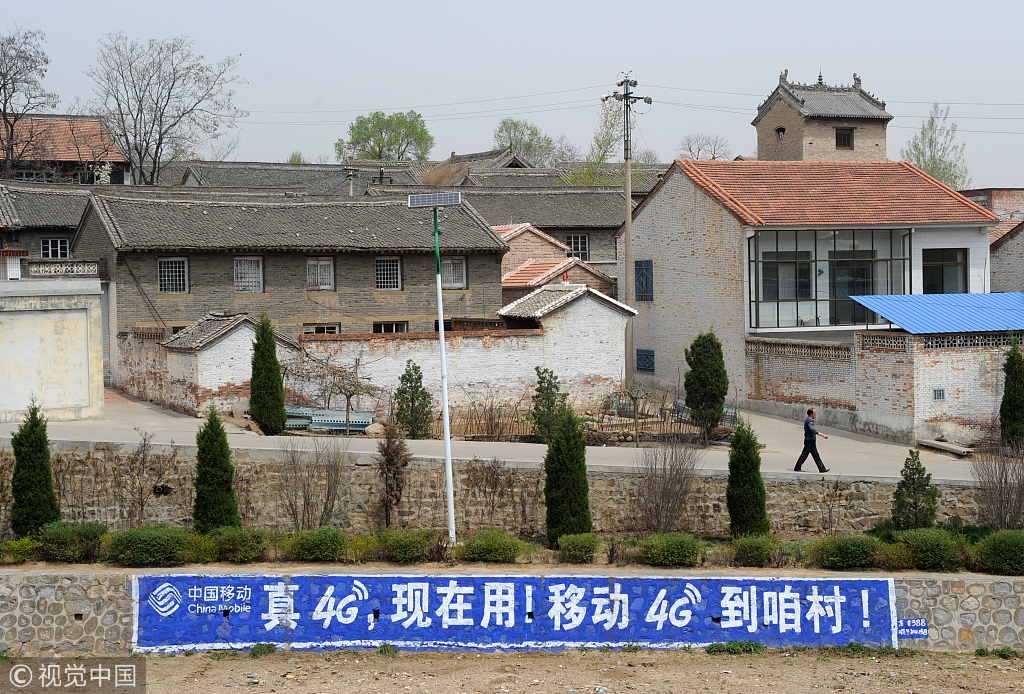Broadband to cover 90% of poor villages in 2018


China plans to quicken its pace in building network infrastructure facilities to push ahead the goal of covering more than 90 percent of poverty-stricken villages with broadband within this year, according to a recent plan.
According to China's 13th Five-Year Plan (2016-2020), the government expects to fulfill the goal by 2020, and the recent plan announced by the Ministry of Industry and Information Technology will achieve the aim two years ahead of schedule.
By 2020, 98 percent of total 122,900 listed poor villages across the country will be covered by broadband.
From late 2015, China started implementing three pilot telecommunication service projects with an investment of over 40 billion yuan ($6 billion).
When the projects are finished by the end of this year, 130,000 administrative villages, including 43,000 in poverty, will be connected with optical fiber network. The network speed will reach 65M, exceeding average speed in urban areas.
"We have made another plan this year to integrate 4G network into the pilot telecommunication services projects, with a focus on promoting 4G coverage in poor villages," a senior official from the MIIT said, according to the Economic Daily.
The official said that the central government has set the subsidies in the pilot projects at a unified rate of 30 percent, different from the separate rates due to different regions, such as 15 percent in the east.
"We'll urge the carriers to further increase the network speed and reduce the expense. Telecom operators are encouraged to introduce special preferential policy for impoverished people in a bid to reduce their burden," he added.
The recent plan has also pointed out that measures should be taken to speed up the popularization of intelligent terminals, app services, actively promoting the development of "internet + education" and "internet + health" platforms.
The official said that the broadband network's role in the poverty alleviation has not been fully utilized, and the penetration rates in e-commerce, online medical care and education were low.
Therefore, the popularization of intelligent terminals should be accelerated, and efforts should be taken to promote internet applications in e-commerce, education, medical treatment and agricultural production.
- China planning to raise age limit for blood donors, shorten the minimum interval
- Breakthrough in BMI tech aids patients
- Chinese technique for making ultrathin metal films named top 10 scientific breakthroughs
- Former senior political advisor of Sichuan sentenced to 14 years
- Beijing has undergone dramatic improvements since 2017's revamped development plans
- AI open alliance launched to pool resources for innovation and application





































